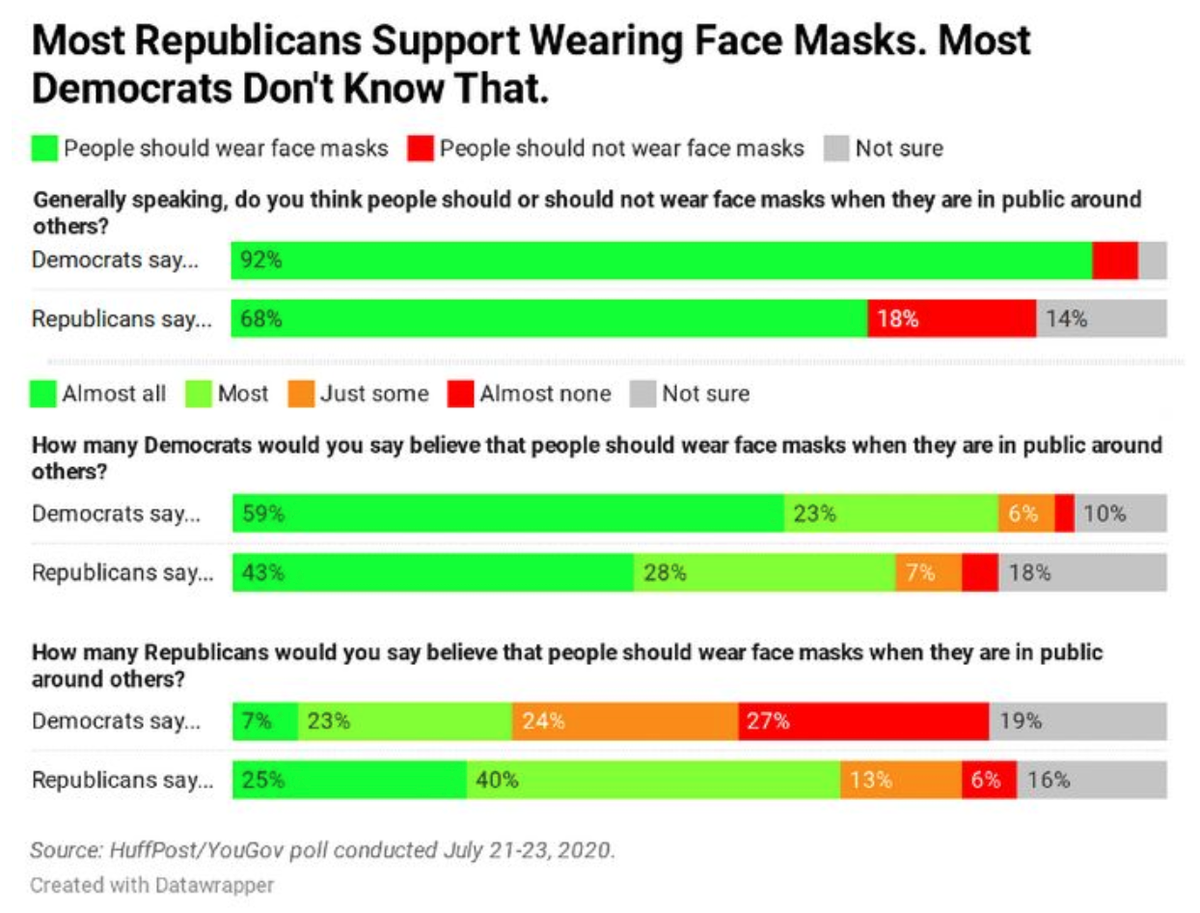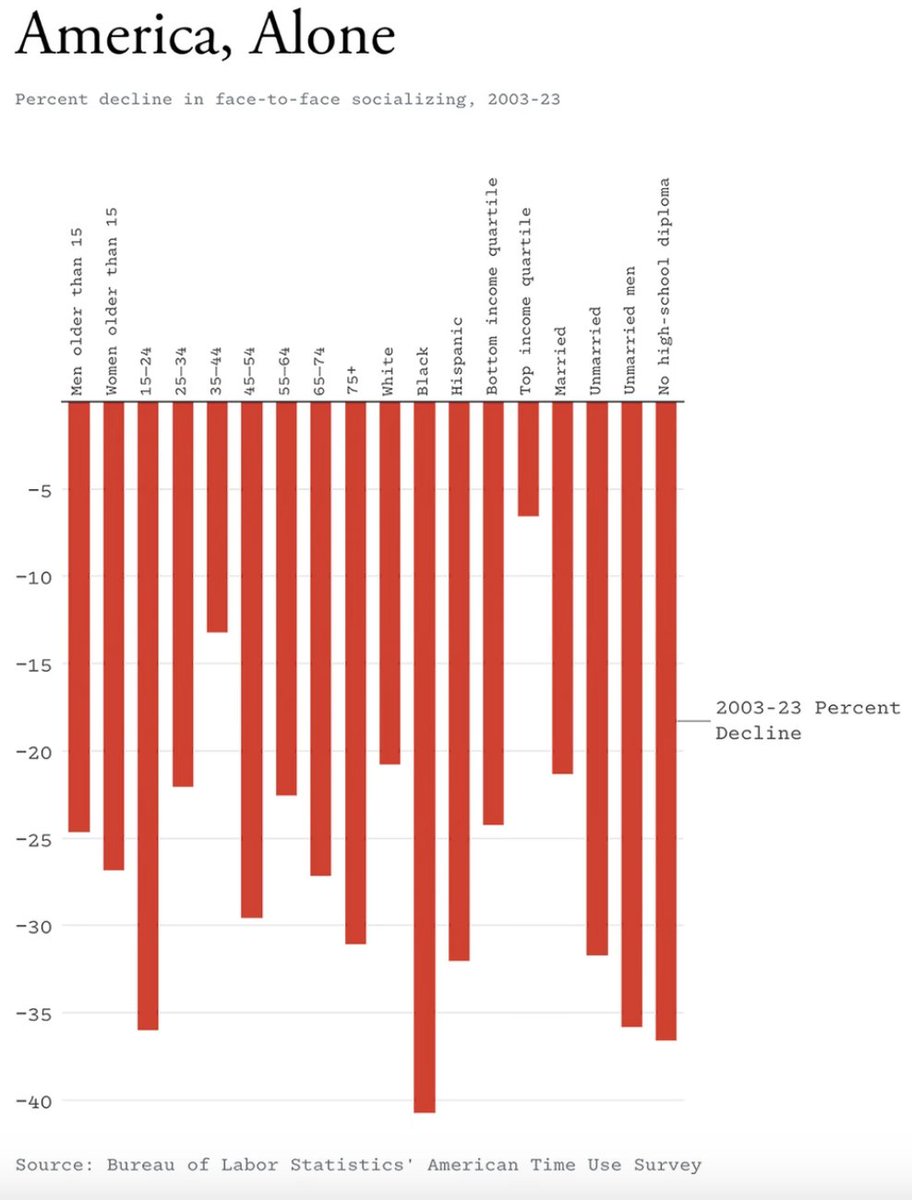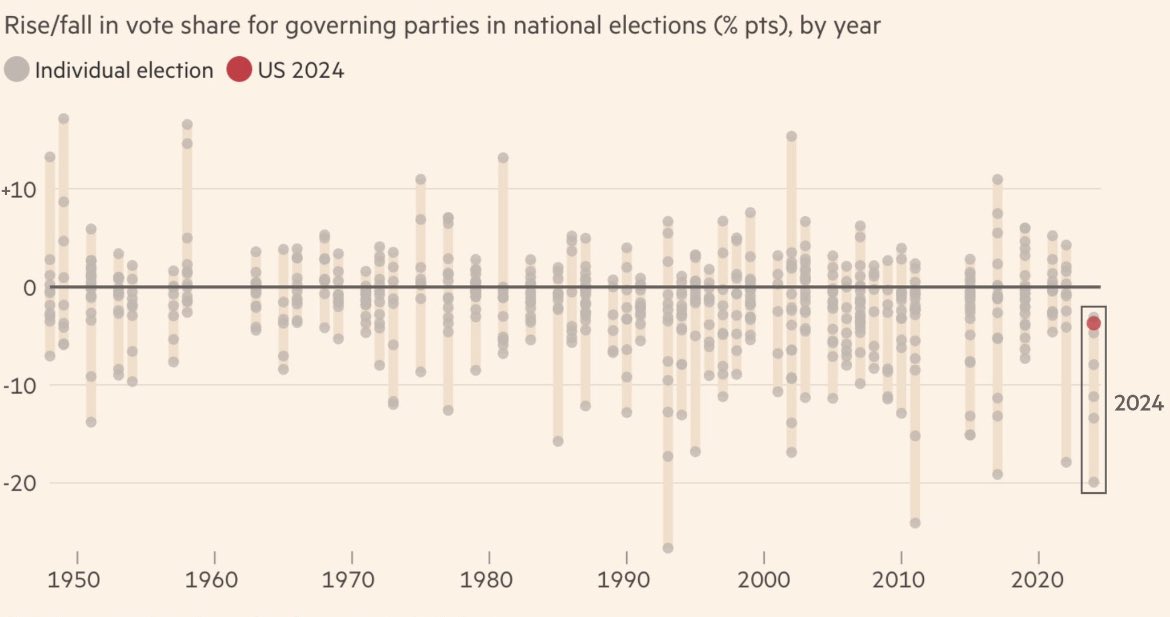Mask wearing is a lot more popular than you think.
huffpost.com/entry/face-mas…
Percent saying people should wear masks in public:
All Americans: 70%
Democrats: 92%*
GOP: 68%**
______
* GOP thinks only 71% of Dems support
** Democrats think only 30% of GOP supports
huffpost.com/entry/face-mas…
Percent saying people should wear masks in public:
All Americans: 70%
Democrats: 92%*
GOP: 68%**
______
* GOP thinks only 71% of Dems support
** Democrats think only 30% of GOP supports

Upshots:
1. For a sharply polarized country, mask wearing is surprisingly popular.
2. There is a 24-point partisan gap in mask wearing.
3. Both sides underestimate the other party's position on masks.
4. Democrats' underestimation of GOP mask preferences is particularly large.
1. For a sharply polarized country, mask wearing is surprisingly popular.
2. There is a 24-point partisan gap in mask wearing.
3. Both sides underestimate the other party's position on masks.
4. Democrats' underestimation of GOP mask preferences is particularly large.
Anticipating the inevitable comments: Yes, this is a poll, not an ethnography.
A poll isn't going to tell you how many ppl are actually wearing masks properly. It's possible both parties are overstating their IRL mask behavior, but I don't know who's overstating it more.
A poll isn't going to tell you how many ppl are actually wearing masks properly. It's possible both parties are overstating their IRL mask behavior, but I don't know who's overstating it more.
Caveat 1: This is a different question, and Republicans are more likely to live in less dense areas, but you see a clearly partisan gap when the question is about "outside" rather than "in public around others"
https://twitter.com/RealDHandelman/status/1287415519260348429?s=20
• • •
Missing some Tweet in this thread? You can try to
force a refresh























